Directory
- Share
Albert Chiou
- Alumni
- United States
- 2007 MPhil Chemistry
- Corpus Christi College
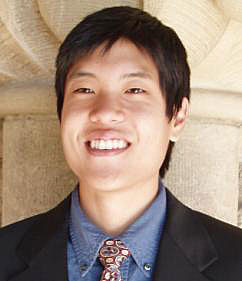
Albert Chiou
- Alumni
- United States
- 2007 MPhil Chemistry
- Corpus Christi College
As a Gates Scholar, I completed an MPhil in Chemistry, by research, in the laboratory of Professor David Klenerman. I studied the application of single molecule spectroscopy towards biomedicine. I am currently a Clinical Assistant Professor in Dermatology at Stanford. My main interest is the development and investigation of novel therapies for epidermolysis bullosa (EB), a severe genetic blistering disorder that can have detrimental effects on both young children and adults. I currently serve as a clinical trialist investigating novel gene therapy interventions for wounds related to EB, along with treatment of itch. I have also continued to work on translational projects focused on chemistry-based approaches to diagnosis of skin cancer. I invite you to read about one our recent projects using a non-destructive mass spectrometry-based imaging technology called desorption electrospray ionization mass spectrometry (DESI-MSI):
https://scopeblog.stanford.edu/2018/06/11/molecular-car-wash-aims-to-make-skin-cancer-surgery-quicker-and-more-accurate/
Chai Hao Chiu
- Alumni
- Singapore
- 2017 PhD Plant Sciences
- Fitzwilliam College
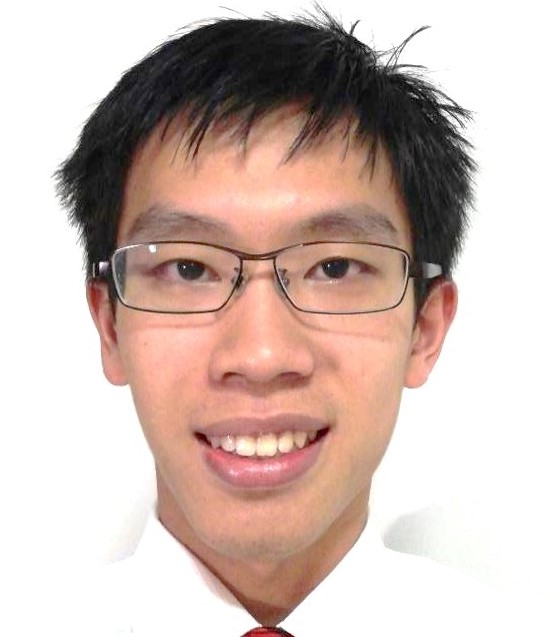
Chai Hao Chiu
- Alumni
- Singapore
- 2017 PhD Plant Sciences
- Fitzwilliam College
I am fascinated by the biological processes that underlie how plants interact with their environment, especially the symbiosis between plants and beneficial arbuscular mycorrhizal (AM) fungi. Evolved when plants first moved onto land, AM symbiosis is crucial to global carbon and nutrient cycles. The perception of AM fungi often enhances root growth, increasing the interface for symbiotic nutrient exchange. As an undergraduate at Cambridge, I identified the first receptor kinase required for this response in rice. As a Ph.D. student, I aim to pursue this exciting lead and elucidate the mechanisms of fungi perception and the signalling pathways that lead to enhanced root growth. This will also contribute to ongoing endeavours to engineer nitrogen-fixing symbiosis into cereal crops (e.g. rice) as it evolved from the older AM symbiosis and also involves reprogramming of root development. Nitrogen fertilisers produced from the Haber process have a substantial carbon footprint and realising this grand challenge will contribute towards sustainable, productive agriculture for food security. I am honoured to join the intellectual community at Gates Cambridge and aspire to contribute to work with transformative impacts on the society.
Previous Education
University of Cambridge
Shannon Chiu
- Alumni
- United States
- 2008 MSc Experimental Psychology
- Emmanuel College
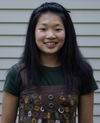
Shannon Chiu
- Alumni
- United States
- 2008 MSc Experimental Psychology
- Emmanuel College
I am currently pursuing an MSc in Experimental Psychology. My project involves a close examination of various subcomponents of the word production pathway (e.g. semantics and phonology), as a function of age or brain-damage. I completed my bachelor’s degree in biology, with a concentration in neuroscience, at Williams College. As an aspiring physician-scientist, I see myself playing a role in the vast effort in combating degenerative brain disorders.
Daniel Choate
- Alumni
- United States
- 2002 Dip Economics
2003 MPhil Economics - Queens' College

Daniel Choate
- Alumni
- United States
- 2002 Dip Economics
2003 MPhil Economics - Queens' College
Otis Chodosh
- Alumni
- United States
- 2010 MASt Pure Mathematics
- Churchill College
Otis Chodosh
- Alumni
- United States
- 2010 MASt Pure Mathematics
- Churchill College
I am at Cambridge reading Part III Maths. Last year I graduated from Stanford University, with degrees in mathematics and physics. I spent most of my childhood in Edmond, Oklahoma, but more recently spent time in Cambridge, Massachusetts. After finishing Part III, I plan to return to Stanford to complete my PhD in pure maths, probably studying Geometric Analysis, Differential Geometry and/or Geometric PDE. After my PhD, I hope to enter academia as a research mathematician.
Semil Choksi
- Alumni
- United States
- 2001 MPhil Biological Science
- Churchill College

Semil Choksi
- Alumni
- United States
- 2001 MPhil Biological Science
- Churchill College
Zhe Choo
- Alumni
- Singapore
- 2009 MPhil Politics
2010 PhD History - Trinity College

Zhe Choo
- Alumni
- Singapore
- 2009 MPhil Politics
2010 PhD History - Trinity College
I'm a history PhD, focusing on reserve currency politics and economic thought in the Bretton Woods period from 1945 to 1971. The greater part of the present Bretton Woods literature deals with high political and high bureaucratic narratives. My goal is to deepen our understanding of the politics of the Bretton Woods era by uncovering neglected narratives of global imbalances from trade unions, business associations, and the financial press.
Edward Chouchani
- Alumni
- Canada
- 2008 PhD Biological Science
- King's College
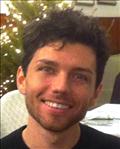
Edward Chouchani
- Alumni
- Canada
- 2008 PhD Biological Science
- King's College
During my undergraduate work I have been involved in extra-curricular independent research with Mobilab Technologies, a biotech company founded by a partner and myself. As its V-P I have been responsible in large part for the development of a bioelectric solar cell, offering a much lower cost alternative to conventional solar technologies by using robust, renewable biological materials. Within the academic sphere I have researched towards the improved characterization of the Stearoyl-CoA desaturase enzyme, responsible for regulation of fat storage and widely pursued potential drug target. At Cambridge I intend to develop and characterize targeted antioxidant small molecules to provide improved therapies for age-related dysfunction, as well as to further understand the role of oxidative stress in the aging process. I believe this research provides an excellent balance of entrepreneurial potential with a desire for better understanding of fundamental biochemical processes.
Jannathul Chowdhury
- Alumni
- United States
- 2023 MPhil Education (KPP)
- Homerton College
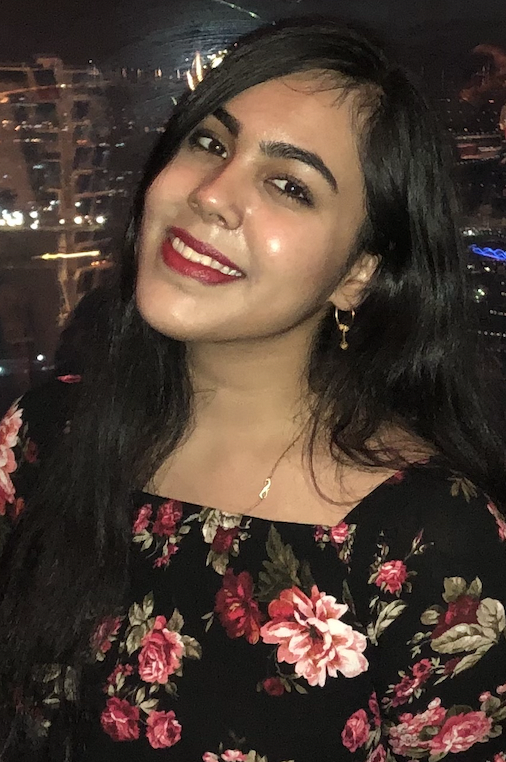
Jannathul Chowdhury
- Alumni
- United States
- 2023 MPhil Education (KPP)
- Homerton College
I am a Bangladeshi American and first-generation college student who was born and raised in New York City. Growing up as a child of immigrants in one of the world’s largest public school systems, I witnessed first-hand the disparities that existed for students with immigrant backgrounds in the public educational system. South Asian immigrants, like myself, often come from a culture where disability education and female education is stigmatized, and this creates further barriers for first-gen students in the educational system. Knowing this, I knew I wanted to make a difference in the field of education. For the last four years, I have been teaching K-12 and helping thousands of first generation students with college matriculation. I am proud to say this May, I will be graduating with a teaching certification and undergraduate dual degree in adolescent education & history from CUNY Hunter College. At the University of Cambridge, I will be receiving my MPhil in Education from the Knowledge, Power and Politics program in order to research the ways that inclusive curricula that work for multicultural students. I am honored to be among the brilliant network of Gates Scholars, who will mobilize me in my pursuit for educational equity.
Previous Education
Hunter College Adolescent Education & History 2023
Rajiv Chowdhury
- Alumni
- Bangladesh
- 2009 PhD Public Health and Primary Care
- Queens' College

Rajiv Chowdhury
- Alumni
- Bangladesh
- 2009 PhD Public Health and Primary Care
- Queens' College
My PhD research will focus on various lifestyle, behavioural and genetic risk factors of cardiovascular disease in South Asian countries such as Bangladesh and Pakistan, based on collaborative primary studies between Cambridge and local leading cardiovascular facilities. These are countries which, despite huge vascular disease burden, remain largely unaddressed. Comprehensive evidence expected from this work should contribute importantly to scientific understanding, to the development of locally appropriate strategies to prevent and control the disease, and to the efficient use of scarce resources for vascular prevention in low-income countries. Additionally, as a scientific coordinator of a large consortium of UK-based cohorts (CNC, comprising over 100,000 participants), I am investigating the roles of diet and nutrigenetics to increase cardiovascular risk in Western population.
Previous Education
University of Cambridge MPhil in Epidemiology 2007
University of Dhaka MBBS 2002
Links
http://www.phpc.cam.ac.uk/people/ceu-group/ceu-senior-research-staff/rajiv-chowdhury
Sayam Chowdhury
- Scholar
- Bangladesh
- 2020 PhD Zoology
- Selwyn College
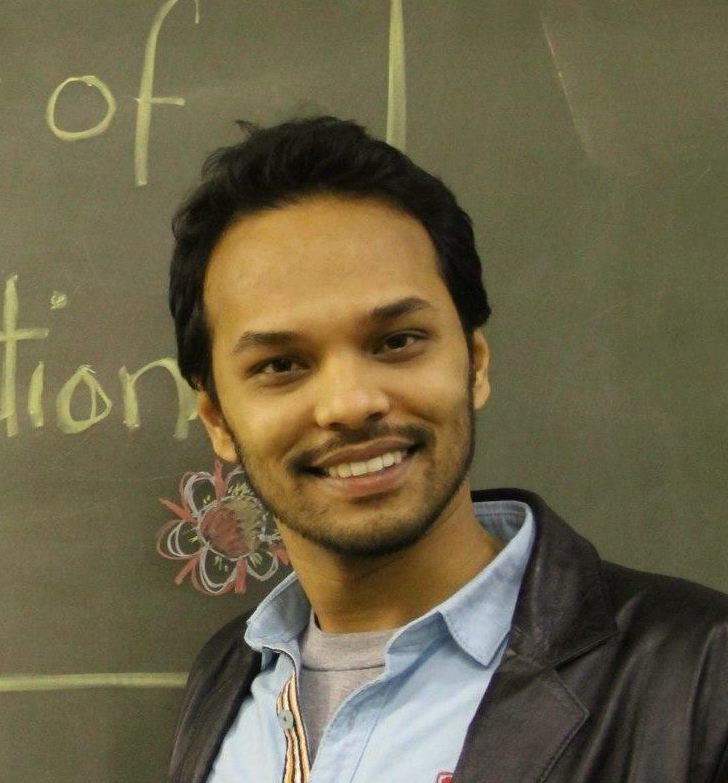
Sayam Chowdhury
- Scholar
- Bangladesh
- 2020 PhD Zoology
- Selwyn College
Growing up in a rural town in the deltaic plains of Bangladesh, I watched the natural environment vanishing in front of my eyes to meet the demands of a growing population and natural disasters. Responding to the growing need for conservation and my passion for wildlife, I have been working in research, conservation and behavioral ecology of globally threatened species in Asia for the past 12 years, focusing on threatened coastal and riverine birds. An undergraduate degree in Environmental Science and MPhil degree from the University of Cambridge have complimented my career, helping me to further understand the complex conservation problems that migratory birds face and to find science-based solutions through rigorous research. The intertidal mudflats of Asia are key habitats, supporting more than 50 million migratory birds, including 33 globally threatened species. My PhD will focus on understanding the habitat requirements of these shorebirds in the coastal areas of Bangladesh and the multiple factors driving their population decline such as intense human pressure and climate change. My work aims to identify the most effective long-term conservation measures for these species, ecosystems and the communities that depend on them.
Previous Education
University of Cambridge Conservation Leadership 2018
North South University, Dhaka Environmental Science 2010
Mun-Kit Choy
- Alumni
- Malaysia
- 2002 PhD Plant Sciences
- Clare Hall

Mun-Kit Choy
- Alumni
- Malaysia
- 2002 PhD Plant Sciences
- Clare Hall
I have chosen Genetics and Molecular as my major because I have been pursuing a career as a scientist who can elucidate the basic mechanisms of biological phenomena. I have done a cytogenetic study on Malaysian bananas and a molecular investigation on MICA, one of the HLA genes. In my PhD project, I am looking at the role of chloroplast protein synthesis in regulating the expression of nuclear genes encoding photosynthesis proteins.
Heejung Chung
- Alumni
- United States
- 2021 MPhil + PhD Computational Methods for Materials Science
- Trinity College

Heejung Chung
- Alumni
- United States
- 2021 MPhil + PhD Computational Methods for Materials Science
- Trinity College
My aspirations to advance sustainable energy using computational materials research emerged from the convergence of pretty disparate influences. I first fell in love with materials science when I saw how different ceramic firing techniques affect the finish on pottery. Born and raised in the California Bay Area, I'd also grown to appreciate the capacity for computer science to augment scientific research, while simultaneously witnessing the detrimental effects of wildfires on people's lives. As an undergraduate at Stanford University, I've had the opportunity to explore broad intersections between all of these interests. My computational materials science research has focused on predicting local crystal structure around simulated particles. In the field of AI for climate change, I've performed research on automated dataset creation to facilitate urban transportation planning. At the University of Cambridge, I will combine what I've learned from these experiences by using generative machine learning models to accelerate materials discovery for batteries. Through this work during my MPhil and PhD, I hope to aid in designing more efficient renewable energy storage.
Previous Education
Stanford University Computer Science, AI Track 2021
Musa Chunge
- Alumni
- Kenya
- 2013 MPhil Engineering
- Wolfson College

Musa Chunge
- Alumni
- Kenya
- 2013 MPhil Engineering
- Wolfson College
In April 2013 I graduated with a degree in civil engineering from the University of Waterloo. Over the course of my training I worked for a total of 24 months split between five organizations. This really gave me a feel for the engineering and construction industry. As I grew in experience I began to notice recurring problems; delays, workflow problems, mistakes in design and construction, the difficulties of quality control, wasted resources and poor communication. Like a good engineer, I want to tackle these issues. Therefore, at Cambridge I will pursue an MPhil in Construction Information Technology. Through it I hope to find novel solutions to these industry problems by implementing concepts such as augmented reality and real-time object recognition. I can envision a much better industry, and I intend to be part of the push to get there.
Lindsay Chura
- Alumni
- United States
- 2008 PhD Psychiatry
- Trinity College
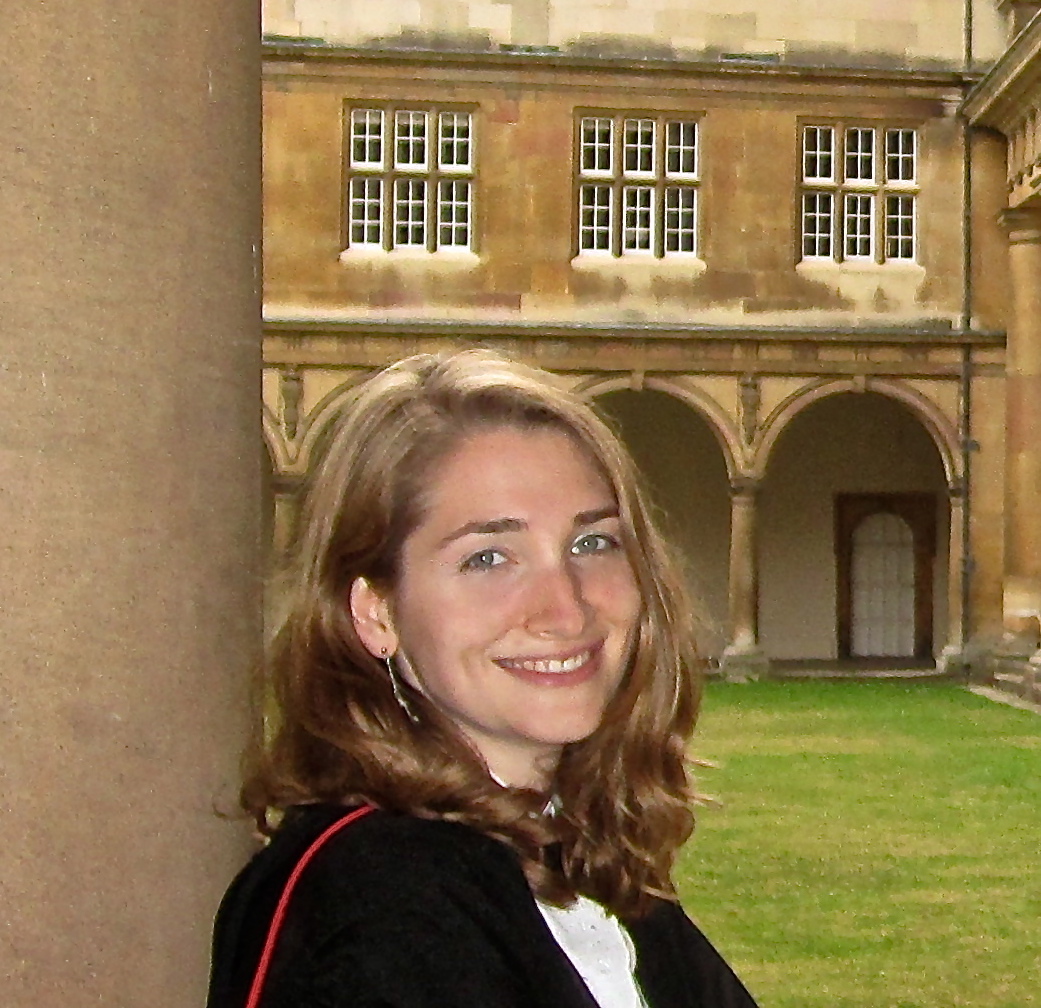
Lindsay Chura
- Alumni
- United States
- 2008 PhD Psychiatry
- Trinity College
Dr. Lindsay Chura is currently the Chief Scientific Officer for the Global Council on Brain Health, an AARP and Age UK collaborative, focused on providing clear and dependable recommendations for maintaining and improving brain health. Lindsay previously held the position as Senior Policy Advisor for Science and Innovation at the British Embassy in Washington where she advised the Ambassador on international health and science issues impacting the UK/US bilateral relationship in addition to leading science diplomacy delegations abroad. Lindsay received her doctorate in Psychiatry at Cambridge for her research that applied neuroimaging techniques to investigate brain structure and function in children with autism she worked with across England. As a Gates Cambridge Scholar, she was actively involved in the scholarship community and managed the Gates Distinguished Lecture Series for two years as an officer on the Scholars’ Council. Prior to studying in the UK, Lindsay was a Fulbright Scholar at a clinic in Australia specialising in reproductive medicine. An alumna of Mount Holyoke College, Lindsay has published across a range of scientific domains, and has previously written for US News & World Report as an American Association for the Advancement of Science (AAAS) Mass Media Fellow. She enjoys engaging with schools and the wider community through science outreach activities.
José Ciro Martínez
- Alumni
- Puerto Rico
- 2013 PhD Politics and International Studies
- King's College

José Ciro Martínez
- Alumni
- Puerto Rico
- 2013 PhD Politics and International Studies
- King's College
Mehmet Kerem Citak
- Scholar
- Turkey
- 2024 PhD Materials Science and Metallurgy
- Darwin College

Mehmet Kerem Citak
- Scholar
- Turkey
- 2024 PhD Materials Science and Metallurgy
- Darwin College
Coming from a family of medical professionals, science was ingrained in me from an early age. I was raised in Istanbul where I had the opportunity of higher education at Sabanci University. I was drawn to materials science for its potential to tackle global challenges, and the intersection of materials science and healthcare innovation is where my academic interests converge. I recently completed my master's degree at EPFL and have since been engaged in interdisciplinary work.Embarking on the next chapter of my journey, I'm honoured to be joining the Gates Cambridge community. I will pursue a Ph.D. at the Cambridge Centre for Medical Materials, working on tissue engineering scaffolds for regenerative medicine.
Links
Alessio Ciulli
- Alumni
- Italy
- 2002 PhD Chemistry
- Wolfson College

Alessio Ciulli
- Alumni
- Italy
- 2002 PhD Chemistry
- Wolfson College
My research aims at understanding the nature of protein-ligand interactions and their importance in biological processes. For these purposes, various biophysical techniques will be used and developed towards potential applications to discover novel drugs. I believe my experience at Cambridge will be invaluable and will provide me a strong basis for a future career of research in drug discovery. I am thankful to the Gates Cambridge Trust for giving me this opportunity.








